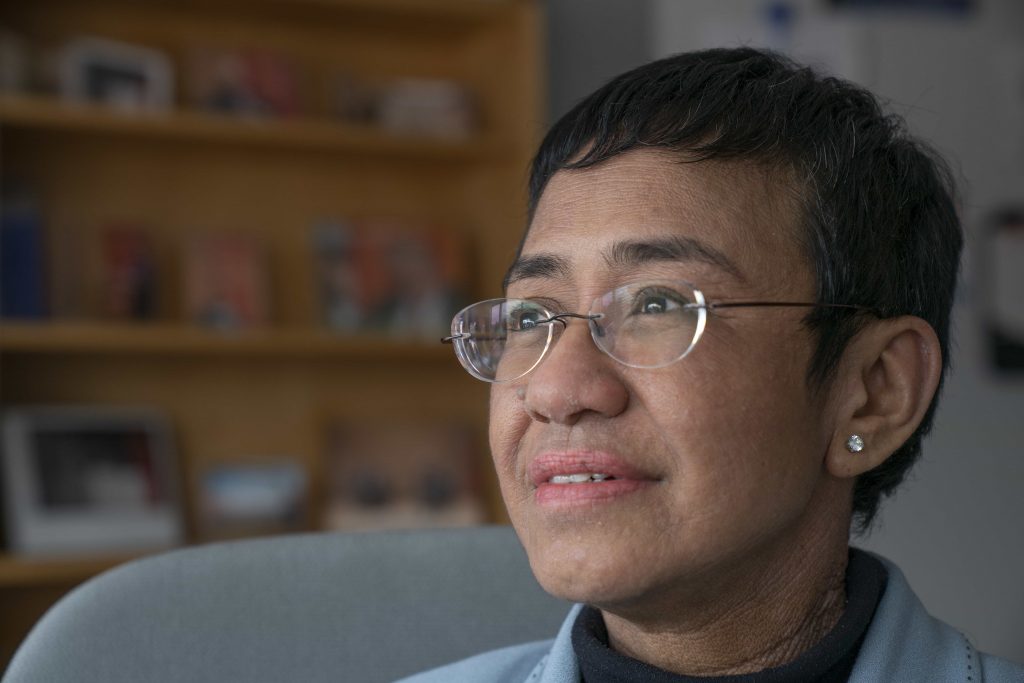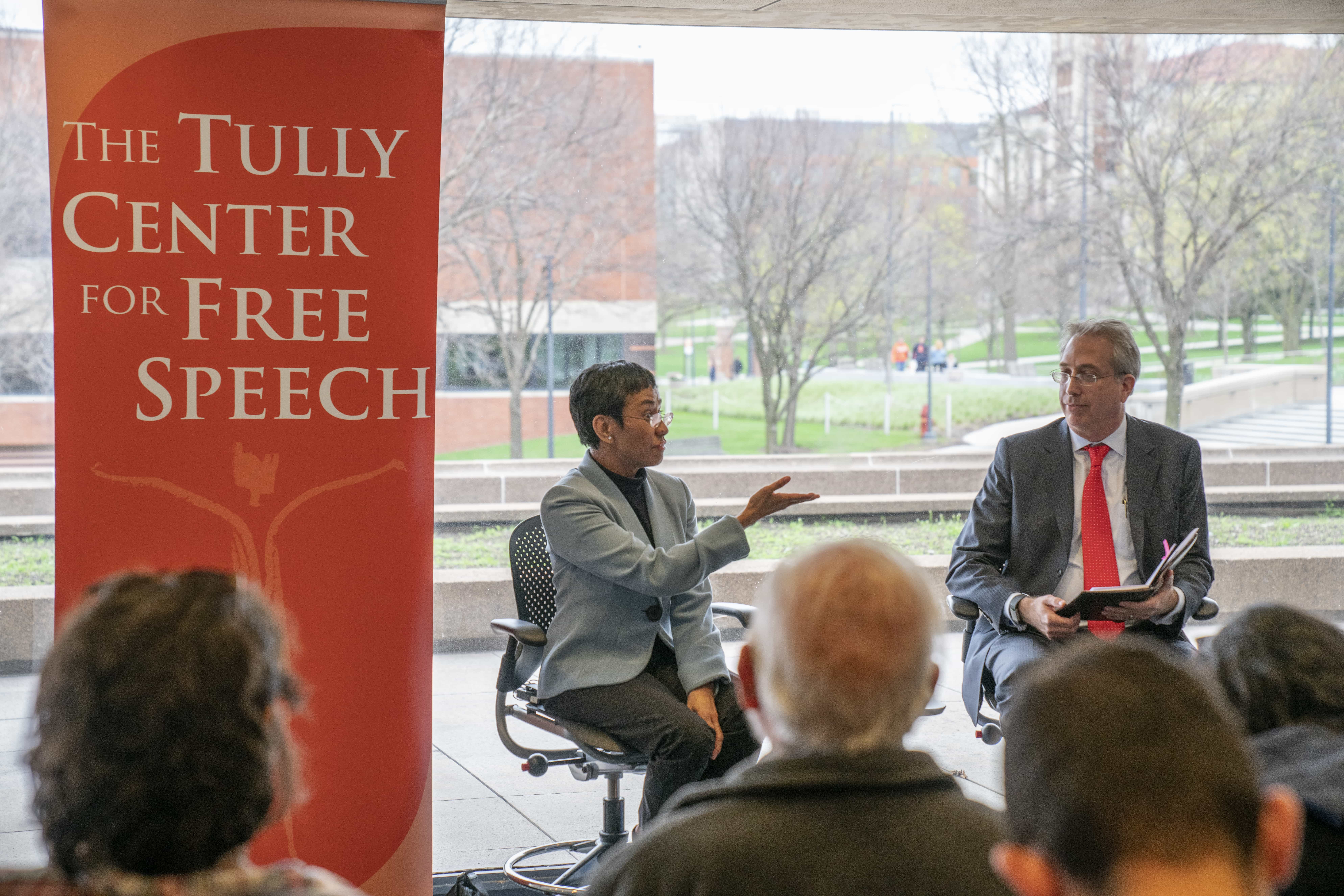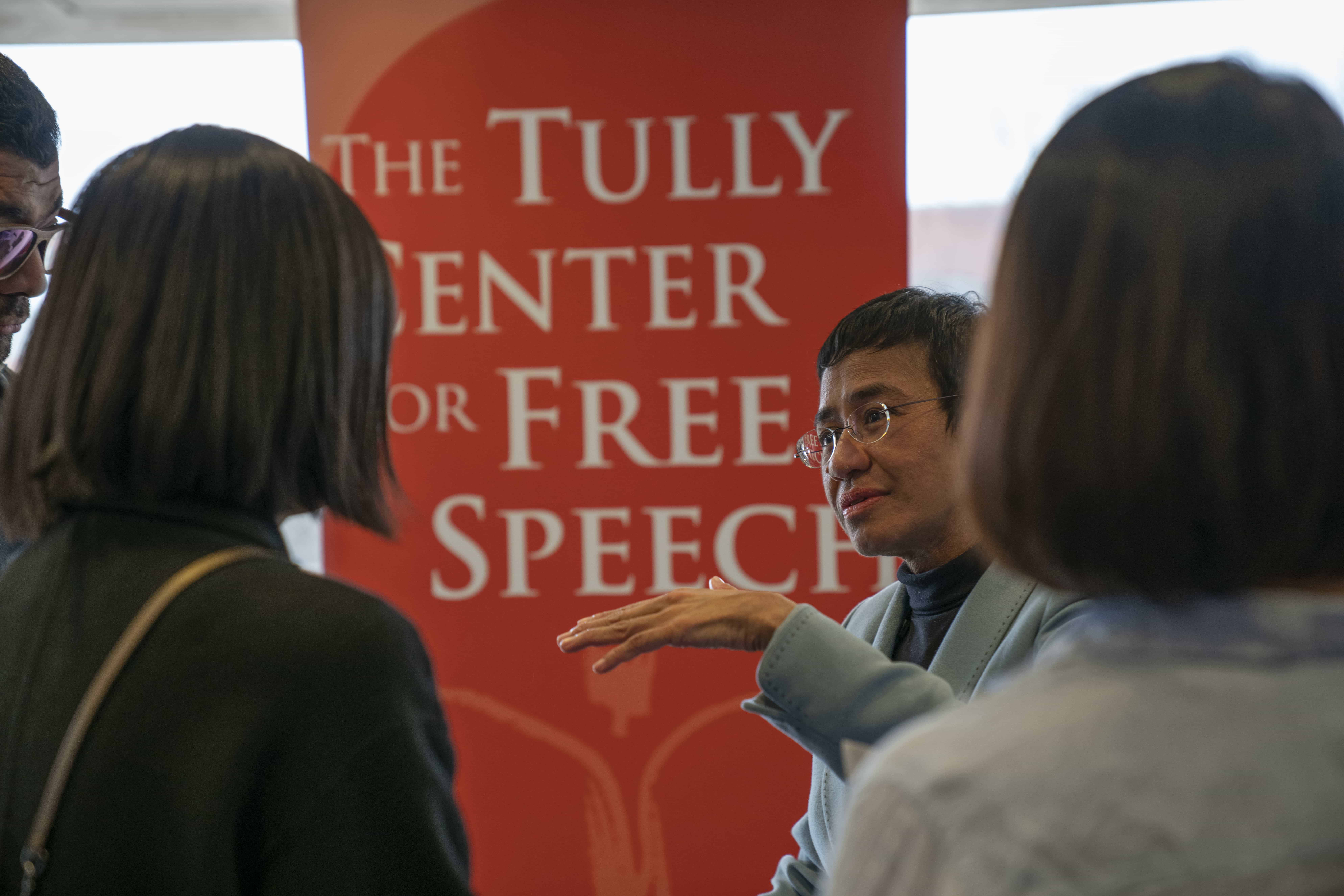Rappler CEO and Filipina journalist honored with Tully Award for Free Speech
Rappler CEO honored with Free Speech Award

Filipina journalist and CEO of Rappler Maria Ressa was honored with the Tully Award for Free Speech on Wednesday in the Newhouse School’s Miron Room.
The award commemorates journalists that display courage in the face of danger while reporting. Previous winners include slain Maltese investigative journalist Daphne Caruana Galizia and Jason Rezaian of the Washington Post. Tully Center Director Roy Gutterman presented the award and moderated the ceremony with Ressa.
The Filipino government under President Rodrigo Duterte has arrested Ressa twice and filed 11 cases against her. The Philippines is ranked 134th out of 180 nations in Reporters Without Borders’ press freedom index. Journalists in the country rally behind the slogan, “hold the line”. Duterte has publicly said that he would not protect journalists since he was sworn in.
Ressa’s work and her arrests earned her worldwide recognition and support from news organizations and press freedom associations from many nations. In 2018, she was named as TIME’s Person of the Year as part of the Guardians, who are journalists from around the world who faced persecution as part of their reporting.
Ressa began her career at CNN’s Manila bureau after college, where she served as the network’s then-youngest bureau chief. At CNN, she specialized in reporting on terrorism in Asia. Ressa said her early career was defined by fear.
“I was a terrible reporter, I think,” Ressa told The NewsHouse. “I was smart, but on camera I was like a kid. You learn stuff on camera really fast.”
Ressa’s experiences at CNN, and later at the Filipino outlet ABS-CBN, shaped her creation of Rappler in 2012. The founders of Rappler, including Ressa, worked at multinational news organizations such as CNN. Ressa said that Rappler combined its primary video team with an investigative magazine team to create a different type of media platform.
“All of these things combine to give you TV and depth,” Ressa said. “My television experience taught me to take out unnecessary details, and distill it into a minute and a half.”
The building process hasn’t stopped there. Ressa spoke at length about new technologies she wants to use in reporting and civic engagement, such as artificial intelligence.
“We’re playing with machine learning and we’ve done very rudimentary exercises so that we can feed the machine. Can it have the editorial judgment of Rappler?” Ressa said. “Artificial intelligence is going to fundamentally impact everything–in fact, it already is.”
Ressa said that she also wants Rappler’s model to be geared less towards time spent on the site and more on the impact their articles have on readers. Rappler has a civic engagement arm called MovePH, which also supports community journalism. Ressa said that building up civic engagement is one way she hopes to break away from the “artificial lines” of traditional journalism.
“Objectivity is a myth to create a system of governance, and it doesn’t work anymore,” Ressa said. “These artificial lines we drew as traditional journalists don’t work in this day and age. Even until 2017 I felt like I was handcuffed on social media by objectivity.”

Ressa emphasized how social media helped and hindered Rappler’s growth. When the company was founded, social media helped boost Rappler to the point where it could compete with ABS-CBN. But Facebook’s 2015 introduction of instant articles coupled with major political events such as Duterte’s election win and the U.S. presidential elections helped spread lies faster than facts, according to Ressa.
“When Facebook treated the news like your favorite joke or gossip, it turned facts into lies and lies into facts,” Ressa said.
When asked about her legal situation, Ressa emphasized that she wasn’t scared. She called the charges of cyber libel “ludicrous” and highlighted government efforts to curb her work through social media.
“The best defense is a good offense,” Ressa said. “I keep going back, because at some point there will be accountability, there will be names attached to this, and we will hold them accountable.”






